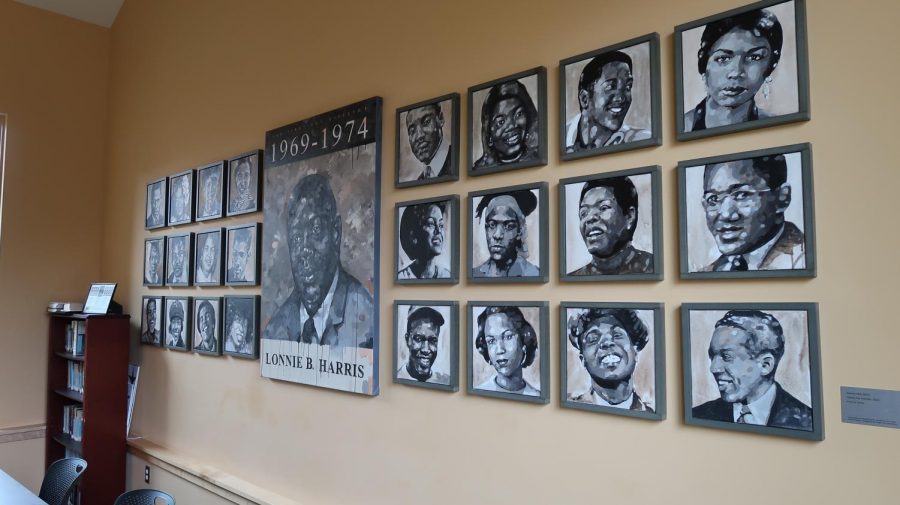OSU-Cascades to host presentation on racism, aims to educate OSU community
Located in the Lonnie B. Harris Black Cultural Center, this collection of pictures on Nov. 2 includes the images of African Americans who have been nationally influential in the Civil Rights movement. In the “Reckoning with Race and Racism in America” presentation on Nov. 3, Oregonians will be encouraged to create a fair and equal opportunity community for minorities.
November 2, 2021
Oregon State University-Cascades will host a presentation on Nov. 3 featuring guest speaker and civil rights activist Michael Eric Dyson. Faculty members encourage students to attend and participate in discussions.
Dyson, a distinguished professor of African American studies and ethics and society at Vanderbilt University, will present “Reckoning with Race and Racism in America” virtually between the hours of 6 and 7:15 p.m.
Dyson is the author of over 20 books, including books about the lives of Malcolm X and Tupac Shakur. Due to a high volume of messages that Dyson’s team receives, he was unable to provide comments about his scheduled presentation.
The presentation will share national and community perspectives and encourage Oregonians to come together in order to create a fair and equal opportunity community for minorities.
Erika McCalpine, OSU-Cascades’ executive director of strategic diversity initiatives, said Dyson is the second speaker in this event series aimed to highlight activism and racial disparities in America.
“For the [first] event, on Oct. 6, we hosted two watch parties, one on our campus in Bend and another on the Corvallis campus,” McCalpine said. “The one in Corvallis was very well attended… we had several questions from students and the community at large.”
McCalpine recognizes the importance of reflecting on how the timestamps of race have influenced where America is now in terms of the social justice movement.
“I have followed Michael Dyson for a long time and read several of his books,” McCalpine said. “This is a person who has dedicated their life to speaking on [racial] issues… I am honored to listen and have a conversation about this country and our future.”
According to McCalpine, history plays a huge role in where we are now and how, in some ways, history has repeated itself. McCalpine said educating students can allow them to implement these concepts into their daily lives and interact with people.
Bringing in scholarly national speakers with similar ethnic backgrounds who talk about important topics provides important encouragement for minority students, McCalpine said.
Interim Vice President of OSU-Cascades Andrew Ketsdever recognizes McCalpine’s remarkable efforts in order to effectively support minority students.
“Through her role as director of the [Diversity, Equity and Inclusion] Lab and now executive director of strategic diversity initiatives at OSU-Cascades, McCalpine has created programs and events that raise awareness within OSU-Cascades, in Central Oregon and far beyond about social justice and inclusion issues,” Ketsdever said.
Ketsdever finds that McCalpine’s work in the OSU community and general public adds to public knowledge and creates a better and fairer world for future generations.
OSU’s Associate Professor of Ethnic Studies and Native American Studies Natchee Barnd has always appreciated Dyson’s work and finds Dyson is skilled at having conversations about race in productive ways.
“Issues of inequality and oppression can never be ignored and should never be ignored,” Barnd said.
He said he encourages students to attend if they have the time because there is no limit to the number of places that people can engage with these things. According to Barnd, it is about action and commitment, not just reading a book.
“People always like to think ‘Oh I’d be on the right side of history’… but would we?” Barnd said. “How do we show that now? Where are we on that side right now? I think these are little moments where we can show where we are and show ourselves.”










































































































